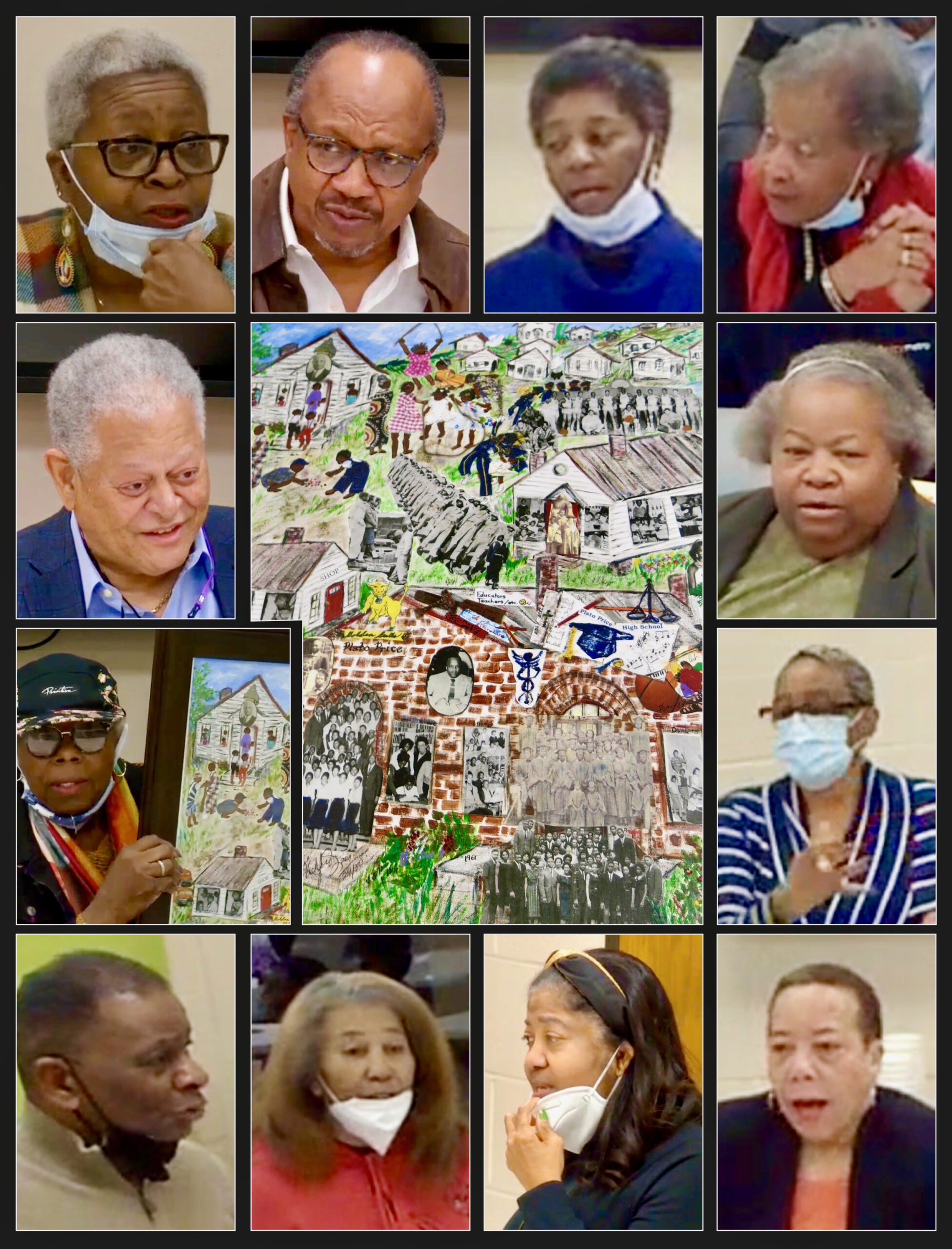
Their stories are different in detail. But at this stage of their lives, the alumni of Charlotte-Mecklenburg’s all-Black schools appear frustrated that younger generations don’t seem to understand how they could possibly have thrived despite ill-equipped schools and racial barriers at every step. And so in the video below, they tried to point out some of the reasons.
By far the most often cited was their teachers’ preparation, dedication and interest in their success. A close second was the firm but loving support of their parents. With those two bulwarks, the group of people who gathered this morning included four judges, numerous educators and, together, people who prepared the way for the next generations.
Participating were former students at York Road, J.H. Gunn, Biddleville, Myers Street, Second Ward, Irwin Avenue, Sterling and Plato Price. plus schools in other parts of North Carolina, two or more states and Africa. Some of the schools were elementaries or junior highs. Some were high schools.
Most of the schools were closed in the 1960s as the city and county school districts merged in 1960, the county was losing tax base to city annexation and believed it could not afford to build new facilities – and amid the hope set off by Brown v. Board that resonated out of N.C. and federal courtrooms to mandate the end of segregated and unequal schools. The stories in the video may confound those who lapped up the Chamber of Commerce myth that integration in Charlotte went great.
“This was incredibly educational for me! I am so appreciative of the opportunity to get to hear these stories and this history firsthand. It was truly an incredible discussion.”
– Leigh Altman,
County Commissioner at-large
“As I promised, I am forwarding this update from the Sarah Stevenson Tuesday Forum to the rest of the CMS Board members who were also invited to attend this session.”
– Thelma Byers-Bailey, Esq.
CMS District 2 Board member